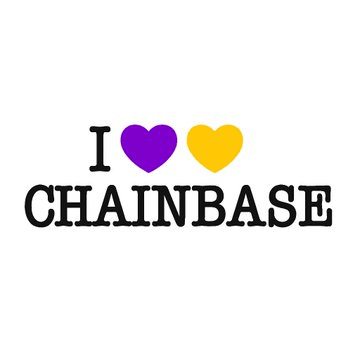Why are we always in a situation of 'information disparity'?
Let's not talk about the project for now, let's talk about feelings.
Brothers, have you ever had this experience?
You see a new airdrop tutorial, the steps are incredibly complex, and by the time you finish it after a lot of effort, the scientists have already brushed thousands of addresses using scripts.
Want to find an Alpha project? You ask in various groups, information is flying everywhere, and there are only a few useful pieces of information. In the end, you still end up FOMOing into a low-quality project.
It's not easy to learn to view on-chain data. Opening Etherscan can almost blind you. I want to track a few whale addresses, but manually marking and exporting data is time-consuming and laborious, and it's easy to make mistakes.
We always say that Web3 is transparent and decentralized, but why is it that ordinary people’s efficiency in obtaining and using information is always lagging behind those 'scientists' and 'whales'?
The core reason can be summed up in one word: data.
To be more precise, it's **'efficient and usable on-chain data'**.
On-chain data is public, that's true. But it's like a raw, chaotic, unorganized massive treasure trove. Ordinary people trying to pan for gold have no tools, no maps, making it basically like searching for a needle in a haystack. Meanwhile, those 'scientists' have various homemade shovels and detectors, naturally outperforming us in efficiency.
Speaking of this, today's protagonist Chainbase can make its appearance.
Chainbase: the 'Swiss Army knife' of data for every Web3 participant.
To put it simply, what Chainbase does is clean, organize, and package those raw, chaotic blockchain data, and then provide a very simple way (mainly through APIs) for you to call them whenever you need.
I know that talking about APIs might deter non-developers. Let me use a metaphor that everyone can understand:
If blockchain is like a huge Lego mountain, filled with blocks of various colors and shapes.
In the past, if you wanted to build a small car, you had to personally climb to the top of the mountain and frantically search through a pile of blocks for four wheels and a steering wheel.
With Chainbase: it's like a super sorting factory that categorizes the wheels, steering wheels, seats, and other parts into standardized boxes for you in advance. You just need to tell it 'I want four wheels,' and it will deliver them to you in a flash.
This 'sorting factory' is profoundly changing the game rules of Web3.
For developers, they no longer have to spend 80% of their time dealing with annoying data issues and can focus on product innovation. Want to create an MEV bot? Want to build an NFT data dashboard? Want to create a multi-chain wallet? Just call Chainbase's data interface, and you can whip up an MVP (Minimum Viable Product) in a few days.
What does this have to do with ordinary users?
It's very important!
More powerful DApps will increasingly emerge: as the barriers to entry lower, the wheels of innovation will turn faster. We will have access to more precise, efficient, and powerful applications. For instance, a tool that can instantly alert you to whale movements and allow you to follow their trades with one click, developed with the support of Chainbase, will become much easier to create.
We can also become 'scientists': Chainbase provides some low-code/no-code tools. This means that even if you are not a programmer, as long as your logic is clear, you can customize your own data dashboard and create your own monitoring alerts through drag-and-drop methods. For example, you can set an alert: 'When the floor price of a certain series of blue-chip NFTs drops by 10%, and more than three whale addresses are placing orders, immediately notify me via Telegram.' — This was unimaginable in the past.
Information is more transparent and fair: it bridges the 'data gap' between ordinary users and elite players. When high-quality data becomes as cheap and accessible as tap water, the 'scissors' that profit from information disparity will become fewer and fewer.

Hardcore things must also be based on data.
Talk is cheap. I'm not the kind of KOL who only knows how to shout slogans; let's look at some concrete points.
I took some time to study Chainbase's documentation and on-chain data, and a few points left a deep impression on me:
The breadth of multi-chain coverage: it not only supports mainstream chains like Ethereum and BNB Chain but also quickly covers popular L2s like Base, zkSync, and StarkNet. This means that wherever the hotspots are, the foundation of the data is there.
The richness of data: I looked at their data set (Data Cloud), from the most basic transactions and blocks to complex DeFi protocol analyses (like AAVE's lending data, Uniswap's liquidity data), and even NFT metadata and transaction histories. It's almost all-encompassing. This is a 'data encyclopedia' for Web3.
Performance and stability: for infrastructure, this is a lifeline. I checked their partners, and top industry projects like Chainlink, Consensys (the parent company of MetaMask), and Dune Analytics are all using their services. Being recognized by these 'most discerning' clients speaks volumes about their professionalism.
(Here you could add a self-made simple chart, like a diagram of Chainbase's ecosystem, or a comparison chart with other data service providers to increase professionalism and creativity.)

Let's discuss something concrete: my thoughts and questions.
Alright, having praised it so much, I'm not just mindlessly blowing smoke. From a user's perspective, I'm also thinking about a few questions, and everyone is welcome to discuss in the comments:
Decentralization paradox? This type of data infrastructure is essentially still a centralized service. While it improves efficiency, does it also bring new centralization risks? If Chainbase goes down, will the numerous DApps that rely on it crash? How should this 'degree' be grasped?
Future business models? Currently, B2B is mainstream. Is there a possibility that a killer application for B2C will emerge in the future? For example, a 'civilian version of Nansen' that allows ordinary people to easily navigate on-chain data analysis? Will Chainbase develop it themselves, or empower the community to do so?
What does the competitive landscape look like? The Graph, Alchemy, Infura... This field has many experts. What is Chainbase's core moat? Is it more comprehensive data? Lower prices? Or a better developer experience? Can it ultimately succeed?
These questions have no standard answers. But it is precisely the existence of these questions that makes Web3 so captivating.
In summary, Chainbase is not a meme project that will make you rich overnight. It is more like a 'water vendor' or a 'arms dealer'. It is quietly building roads and bridges for the next wave of explosive Web3 applications.
And we, as keen Web3 participants, need to do is understand the changes in these underlying logics.
Because when the next wave of change arrives, those who understand and make good use of this 'water' and 'ammunition' first will undoubtedly be the biggest winners.
Alright, let's wrap up today's discussion. What do you think about Chainbase, or the entire Web3 data track? How do you think it will change our investment and interaction methods?

